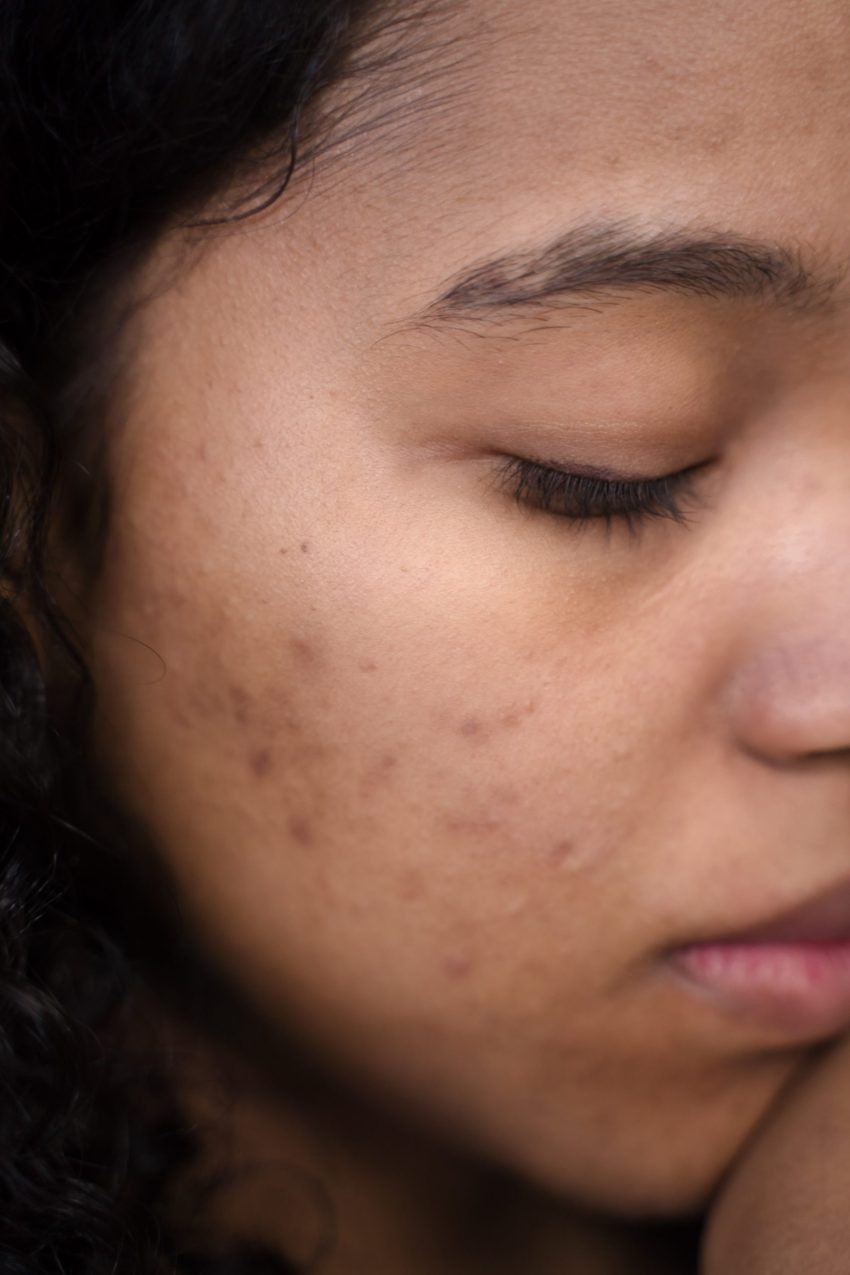If you’re worried that you might have acne, know that you’re not alone. Acne is the most common skin condition in the US, affecting nearly 50 million people every year. Acne develops when hair follicles become clogged with oil and dead skin cells. These blockages then cause different types of pimples to form.
Acne most often starts during puberty. While most people who experience acne as a teenager will notice an improvement in their skin as they get older, some people can continue to struggle with acne well into their 50s. Some people may even get acne for the first time as an adult. Fortunately, there are many different treatment options for all types of acne, from mild to severe.
What Are the Signs of Acne?
The main sign of acne are spots that form on the face and/or body. Acne most commonly occurs on parts of the body with the most oil glands, like the face (including the forehead), neck, chest, shoulders, and upper back.
There are many different types of acne, and it’s possible to have more than one type of acne at once. The different types of acne include:
- Blackheads: Clogged pores that are open.
- Cystic acne: Puss-filled cysts that form deep underneath the skin.
- Fungal acne: An overgrowth of yeast within the hair follicles that causes inflammation.
- Nodules: Pimples that lie deep in the skin and are hard to the touch.
- Papules: Small pink or red bumps that can become inflamed and tender.
- Pustules: Red inflamed bumps that contain pus.
- Whiteheads: Clogged pores that are closed.
People with mild acne most commonly develop blackheads and whiteheads. People with moderate acne typically develop papules and pustules. People with severe acne are more likely to develop cysts.
How Is Acne Treated?
While it’s difficult to prevent acne, there are many effective treatment options available, including:
- Topical medications (applied to the skin): Topical medications include over-the-counter and prescription medications. Topical ointments for acne can be used to kill bacteria, to help remove the top layer of damaged skin, or to help break up blackheads and whiteheads.
- Oral medications (taken by mouth): Oral medications require a prescription and are used as an antibacterial or to shrink the size of oil glands to therefore reduce the amount of oil production.
- Other therapies: In certain cases, medications can also be combined with other treatments, such as steroid injections that are administered directly into the affected area, laser treatment, and chemical peels.
- Diet as a supplemental treatment: Research shows that there is a link between diet and the frequency and severity of acne breakouts. To help prevent acne flare-ups, avoid foods with a high sugar index (like pasta, white bread, and soft drinks), dairy, and whey protein.
Should You See a Doctor if You Think You Have Acne?
If you think that you have acne and haven’t seen an improvement with over-the-counter products, make an appointment with your general practitioner, who can prescribe stronger medication. If your acne doesn’t improve, you may need to see a doctor who specializes in skin conditions, called a dermatologist. A dermatologist can help you understand your skin type and can help you find the right acne treatment for your skin.
Sources:



